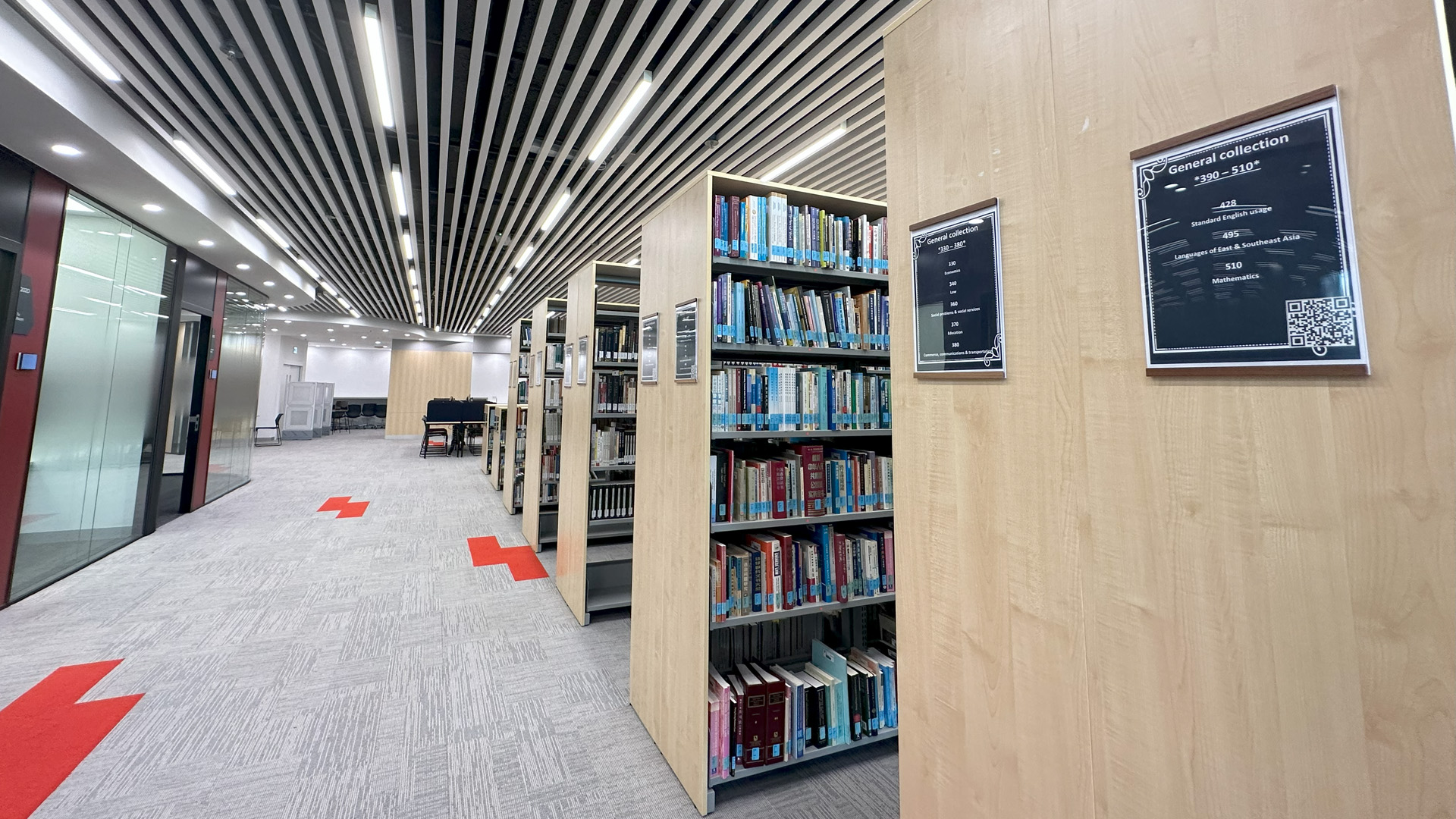Associate of Social Science in Applied Psychology
This programme provides a sound foundation in psychology, covering research and counselling methods, and various areas including biological psychology, developmental psychology, social psychology, cognitive psychology and abnormal psychology. Students will be able to understand how their own behavior is influenced by various factors, including the environment, their biology and their thoughts. The programme also introduces other related disciplines, including sociology, culture studies and ethics, to widen students’ horizons. All core courses are conducted in small-class teaching, which provides ample opportunities for interchange among students and teachers. The Social Science Laboratory also allows students to enhance their counselling skills through review from different perspectives.
From the programme, students receive all-rounded training that enhances their articulation prospect in psychology or other social science degree programmes, which are widely offered by local tertiary institutions. Graduates may also be able to perform the role as psychologist assistant, counselling assistant, customer service assistant, student development assistant and research assistant.
FACULTY |
PROG. CODEASocScAP |
CAMPUS |
QF LEVEL4 |
|---|---|---|---|
DURATION2 years
|
CREDIT POINTS63 CPS
|
AWARD TYPEAssociate Degree
|
QR REF/
|
Admission, entry requirements and fees
Applications can be submitted by the following methods:
- E-APP (for current year HKDSE only)
- Online Application (for all applicants with DSE/ other qualifications, or mature applicants)
- By Post / In Person (Application Form)
Click here for more information on admissions procedures.
Programme Specific entry requirements
- No programme specific entry requirements
Fees
Application Fee
$150
Application fee is payable when applicants are invited for interviews. Application fee can be paid by the following methods:
- By direct deposit at any branch of the Hang Seng Bank or ATM transfer (Bank Code: 024) (A/C number: 359-300001-004) OR
- By Octopus Card at the College Office
Tuition Fee
Associate Degree Programmes
HK$1,950 per credit x
63 Credits required for Programme Completion
= HK$122,850
Higher Diploma in Social Work
HK$2,650 per credit x 38 social work courses credit +
HK$1,950 per credit x 21 general Education credit +
HK$2,610 per credit x 15 fieldwork placement credit
= HK$180,800
Other Fees
A Graduation Fee of $400 will be charged upon enrolment in a programme.
Financial Assistance
Students enrolled in self-financing Bachelor/Associate Degree /Higher Diploma programmes are eligible to apply for financial assistance from the following sources:
- Financial Assistance Scheme for Post-Secondary Students (FASP)
Provides means-tested financial assistance to needy full-time students pursuing locally-accredited, self-financing post-secondary education programmes at the level of associate degree, higher diploma or degree. The scheme aims to provide financial assistance to needy students so that no eligible students will be denied access to post-secondary education because of lack of means.
Enquiries: 2152 9000
Website: https://www.wfsfaa.gov.hk/sfo/en/postsecondary/fasp/overview.htm
- Non-means Tested Loan Scheme for Post-Secondary Students (NLSPS)
The NLSPS is used to complement the Financial Assistance Scheme for Post-secondary Students (FASP) to provide loan(s) to eligible students to settle tuition fees of locally-accredited, self-financing full-time post-secondary education programmes at the level of associate degree, higher diploma or degree.
Enquiries: 2150 6222
Website: http://www.wfsfaa.gov.hk/sfo/eng/schemes/nls3.htm
- Continuing Education Fund (CEF)
Some of the AD programmes or course(s) in the AD programmes are included in the list of reimbursable courses for CEF purposes.
The CEF subsidizes students with learning aspirations to pursue continuing education and training courses without age limit. Eligible applicants enrolling on courses after 1 August 2022 will be reimbursed 80% of their fees on the first $10,000 and 60% on the second $15,000, subject to a maximum sum of HK$25,000 (whichever is the less), upon successful completion of a reimbursable programme/course(s).
Prior to 1 August 2022, the following condition will apply:
The CEF subsidizes students over 18 years of age with learning aspirations to pursue continuing education and training courses. Eligible applicants enrolling on courses between 1 April 2019 and 31 July 2022 will be reimbursed 80% of their fees on the first $10,000 and 60% on the second $10,000, subject to a maximum sum of HK$20,000 (whichever is the less), upon successful completion of a reimbursable programme/course(s).
Enquiries: 3142 2277
Website: https://www.wfsfaa.gov.hk/cef/en/index.htm
Programme outcomes and structure
- Learning outcomes
- Main subject areas
- Programme structure
- Articulation pathways
- Career opportunities
- Graduates' sharing
- Programme enquiry
Programme Intended Learning Outcomes (PILOs) are statements of learning achievement that are expressed in terms of what the learner is expected to know, understand and be able to do upon completion of a course. Students graduating from this programme will be able to:
| PILO | Description |
|---|---|
| 1. | Analyse the major psychological concepts, theoretical perspectives, and empirical findings in human processes and behaviours; |
| 2. | Apply psychological approaches and use appropriate information technology in gathering and analyzing data, solving problems, and developing initiatives within various personal and professional settings; |
| 3. | Apply the knowledge of Social Science in personal, socio-political, cultural, and professional context; |
| 4. | Communicate effectively, both orally and in writing, on psychology related issues; and; |
| 5. | Relate the major ideas in arts and humanities, science and technology to psychology. |
- Introduction to Psychology
- Developmental Psychology
- Social Psychology
- Abnormal Psychology
- Concepts and Theories of Counselling
- Personality Psychology
- Learning and Cognition
- Biological Psychology
(From 2024/25 and onwards)
|
Year 1 Semester A |
|
|---|---|
|
CGE1000/1500 |
English for Academic Studies A/B |
|
CGE14411 |
Critical Thinking |
|
CGE25411 |
Understanding Society |
|
CGE13213 |
Information Technology: Application and Impact |
|
DSS10401 |
Introduction to Psychology |
|
Year 1 Semester B |
|
|
CGE2002 |
English for Professional Communication in Social Sciences |
|
CGE10413 |
Hong Kong Society |
|
DSS10621 |
Developmental Psychology |
|
DSS10623 |
Social Psychology |
|
CGE13113 |
Understanding Statistics |
|
DSS20714 |
Trends and Transformation in World Affairs |
|
Year 2 Semester A |
|
|
CGE26515 |
Understanding Contemporary China |
|
DSS20401 |
Social Research |
|
DSS20709 |
Culture and Identity |
|
DSS20612 |
Abnormal Psychology |
|
DSS20670 |
Concepts and Theories in Counselling |
|
Year 2 Semester B |
|
|
CGE1200 |
Practical Chinese |
|
CGE24411 |
Ethics and Society |
|
DSS22223 |
Personality Psychology |
|
DSS22227 |
Learning and Cognition |
|
DSS22232 |
Biological Psychology |
60% graduates articulated to UGC-funded universities, including:
University of Hong Kong
- Bachelor of Psychology
- Bachelor of Social Sciences (Honours) in Psychology
The Chinese University of Hong Kong
- Bachelor of Science in Gerontology
The Education University of Hong Kong
- Bachelor of Social Sciences (Honours) in Psychology
The Hong Kong Polytechnic University
- Bachelor of Science (Honours) in Mental Health Nursing
City University of Hong Kong
- Bachelor of Social Sciences in Criminology & Sociology
- Psychologist assistant
- Counselling assistant
- Customer services assistant
- Student development assistant
- Research assistant
Miss Isabella Chan
(graduate of ASocScAP in 2023, articulated into BSocSc in HKU, Year 3)
The UOWCHK's Associate of Social Science in Applied Psychology programme allowed me to gain a strong foundation in psychology that has prepared me for my future studies and career. The programme stands out for its emphasis on practical training and experiential learning, which have equipped me with the necessary skills to succeed in the field. I would like to express our gratitude to UOWCHK for providing me with an exceptional education and various internship opportunities. I encourage others who are interested in pursuing psychology to consider UOWCHK for its excellent programme and supportive community.

Any enquiries relating to the ASocScAP programme should be directed to the Programme Leader, Dr Kam Yuen CHENG.
Contact Us
Faculty of Social Sciences
Telephone: (852) 2707 3223
Fax: (852) 2707 3224
E-mail: uowchk-fss@uow.edu.au
Address: 3/F, 18 Che Kung Miu Road, Tai Wai, New Territories, Hong Kong
(accessible via MTR Tai Wai Station Exit B)
College Office
Telephone: (852) 2707 3111
Fax: (852) 2707 3222
E-mail: uowchk-main@uow.edu.au
Address: 1/F, 18 Che Kung Miu Road, Tai Wai, New Territories, Hong Kong
(accessible via MTR Tai Wai Station Exit B)
